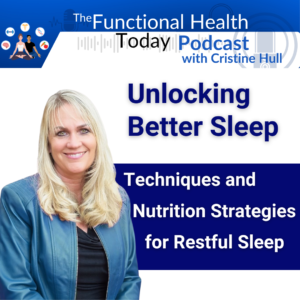
What Are the Cognitive Benefits of Physical Activity for Older Adults?
As older adults navigate the complexities of aging, understanding the cognitive benefits of physical activity becomes essential. This article explores how exercise can enhance cognitive function and combat cognitive decline, fostering overall brain health.
KEY POINTS
Regular physical activity significantly boosts cognitive function in older adults by improving memory, focus, and cognitive resilience, reducing the risk of cognitive decline and dementia.
Aerobic exercise, strength training, and mind-body practices like yoga are particularly beneficial for brain health, promoting neurogenesis, enhancing memory, and supporting emotional well-being.
Incorporating physical activity into daily routines, such as walking, swimming, or even simple stretching, can improve cognitive performance and prevent cognitive decline.
Exercise not only enhances brain structure and neural pathways but also helps manage stress and improve mood, contributing to overall mental clarity and cognitive flexibility.
How Does Physical Activity Improve Cognitive Function?
The effects of physical exercise on cognitive function are well-documented, showing a positive effect across various cognitive domains. Regular physical activity and cognition interventions can lead to an improvement in cognitive performance, particularly in cognitive control among older adults, reducing the risk of cognitive decline.
Additionally, the effect of acute exercise also demonstrates significant influence on cognitive processes by enhancing brain plasticity. Engaging in an exercise program or acute physical activity can stimulate brain health and promote the benefits of exercise on cognitive function. As highlighted by the CDC, physical activity can improve memory, reduce anxiety or depression, and lower the risk of cognitive decline, including dementia.

Pop in your email below, and we’ll zip it straight to your inbox so you never lose it!
What Are the Long-Term Cognitive Benefits of Regular Exercise?
Regular exercise significantly benefits brain health, enhancing memory, focus, and long-term cognitive resilience. Here’s how:
- Improved Memory and Learning: Exercise boosts brain-derived neurotrophic factor (BDNF), supporting neural growth and better memory retention.
- Reduced Risk of Cognitive Decline: Physical activity protects against dementia and Alzheimer’s by preserving brain function and reducing inflammation.
- Enhanced Focus and Executive Function: Exercise improves attention span and decision-making by stimulating the prefrontal cortex.
- Stress Reduction and Emotional Well-being: It lowers cortisol levels while increasing endorphins, enhancing mental clarity and reducing stress.
- Long-Term Brain Health: Regular activity promotes neurogenesis, helping maintain cognitive sharpness as you age.
By staying active, you’re not just supporting your body—you’re future-proofing your mind.
How Does Exercise Affect Cognitive Function in Older Adults?
 The effect of exercise on cognitive performance in older adults is significant. Regular physical activity and cognitive function interventions can prevent cognitive decline by enhancing brain volume and improving brain structure. Exercise may have acute effects, positively influencing mood and memory.
The effect of exercise on cognitive performance in older adults is significant. Regular physical activity and cognitive function interventions can prevent cognitive decline by enhancing brain volume and improving brain structure. Exercise may have acute effects, positively influencing mood and memory.
A systematic review with meta-analysis highlights the effect of aerobic exercise on various brain regions, showing that consistent physical activity positively impacts cognition. These exercise interventions lead to improved cognitive performance, as they stimulate vital neural pathways.
Moreover, the effect of physical activity extends beyond just cognitive enhancement; it also influences both physical and mental health. The acute effects of exercise on cognitive function can lead to immediate improvements, reinforcing the importance of integrating exercise into daily routines.
In summary, the exercise effects on cognitive function are profound, making it a crucial component in maintaining mental acuity among older adults. Continued research in sport and exercise psychology will further elucidate these benefits.
What Types of Physical Activity Are Most Beneficial for Cognitive Health?
Certain physical activities are particularly effective at enhancing and protecting cognitive health. Here are the most impactful types:
- Aerobic Exercise: Activities like running, swimming, and brisk walking improve blood flow to the brain, enhance memory, and support the growth of new brain cells. Regular aerobic exercise is especially beneficial for the hippocampus, the brain area responsible for learning and memory.
- Strength Training: Weightlifting, resistance exercises, or bodyweight workouts stimulate the release of growth factors that enhance brain plasticity and improve focus, problem-solving, and decision-making.
- Mind-Body Practices: Yoga, tai chi, and similar exercises combine movement with mindfulness, reducing stress, enhancing emotional stability, and improving mental clarity.
- Skill-Based Activities: Sports, martial arts, and dancing involve coordination and quick thinking, improving neural connectivity, reaction time, and cognitive flexibility.
- Everyday Movement: Simple activities like walking, stretching, or standing periodically during the day counteract the negative effects of prolonged sitting, supporting overall brain health.
Combining these activities into your routine ensures maximum benefits for memory, focus, and long-term cognitive resilience.
How Can Older Adults Incorporate More Physical Activity into Their Lives?
Older adults can incorporate more physical activity into their lives by engaging in regular exercise, which improves cognition and has a positive effect on cognitive functions. Activities such as walking, swimming, or yoga can be easily performed and enhance overall well-being.
The role of physical exercise is crucial, as it is associated with the neuroprotective effects of physical activity that support exercise on memory and enhance working memory performance. Even acute physical exercise can lead to significant effects of exercise on cognition.
By prioritizing physical activity and the prevention of cognitive decline, older adults can enjoy the effects of acute physical exercise, which directly impacts physical activity on working memory. This commitment to staying active ultimately fosters a healthier mind and body.
What Are Some Simple Ways to Increase Daily Physical Activity?
To increase daily physical activity, consider incorporating simple changes like walking or cycling instead of driving. Regular exercise enhances cognitive function and has a positive effect on cognitive performance. Even acute physical exercise can significantly improve cognition, particularly regarding effects of exercise on cognition and physical activity on working memory.
Engaging in activities such as stretching or using stairs can also serve as effective ways to boost physical activity. The role of physical exercise is crucial, as it is associated with the neuroprotective effects of physical activity. These simple adjustments can promote physical activity and the prevention of cognitive decline.
Furthermore, participating in group sports or classes can make movement enjoyable. Such activity performed regularly not only enhances exercise on memory but also has profound effects of acute physical exercise on working memory performance and overall cognitive health.
Maintaining a healthy brain is crucial for overall well-being, and lifestyle choices like regular exercise and a balanced diet can make a significant difference. For more tips on keeping your brain healthy, including the importance of physical activity in reducing the risk of cognitive decline and Alzheimer’s disease, check out these 6 tips from Mayo Clinic Health System.











